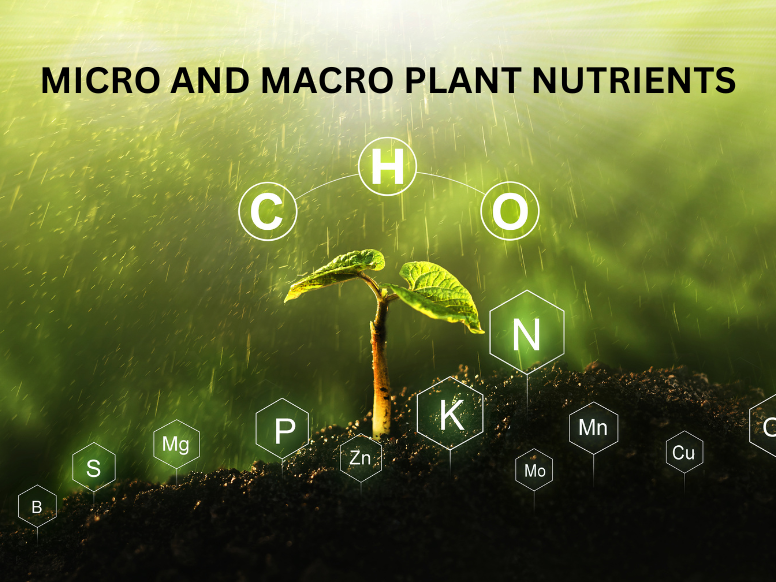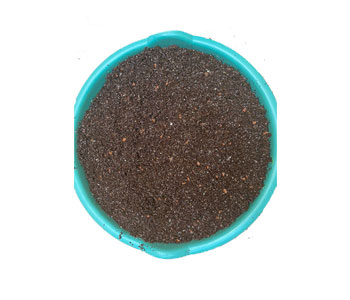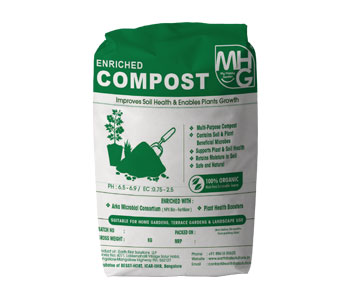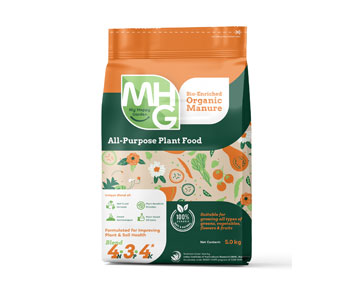Welcome to our comprehensive guide on plant nutrition, where we delve into the fascinating world of micro and macro nutrients. Understanding the role of these essential elements is key to promoting healthy plant growth and maximizing yields in your garden or farm. Let’s explore the fundamentals of plant nutrition and how you can optimize nutrient management for thriving plants.
The Basics of Plant Nutrients
Just as humans intake good and nutritious foods to keep themselves healthy and strong, plants need nutritious foods as well, we call them fertilizers.
As you may know, the soil contains all the nutrients the plants need, and more than that plants are autotrophs, which means they prepare their own food materials through the process called photosynthesis which is needed for their growth and development.
So, do they need extra food?
The answer is yes, they need. Let’s know why in depth.
Plants require a diverse array of nutrients to support their growth and development. These nutrients can be broadly categorized into two groups: macro nutrients and micro nutrients.
- Macro Nutrients: Required in comparatively larger amounts
- Nitrogen (N): Essential for vegetative growth, leaf development, and overall plant vigor.
- Phosphorus (P): Vital for root development, flowering, and fruit set.
- Potassium (K): Promotes disease resistance, water regulation, and fruit quality.
- Calcium (Ca): Supports cell wall structure and root development.
- Magnesium (Mg): A component of chlorophyll essential for photosynthesis.
- Sulfur (S): Necessary for protein synthesis and enzyme function.
- Micro Nutrients: Required in smaller quantity
- Iron (Fe): Involved in chlorophyll synthesis and enzyme activation.
- Manganese (Mn): Facilitates photosynthesis and enzyme reactions.
- Zinc (Zn): Essential for hormone regulation and carbohydrate metabolism.
- Copper (Cu): Required for enzyme activation and nutrient uptake.
- Boron (B): Aids in cell division, pollen formation, and fruit development.
- Molybdenum (Mo): Necessary for nitrogen fixation and enzyme activity.
- Chlorine (Cl): Plays a role in photosynthesis and osmotic regulation.
- Nickel (Ni): Required for nitrogen metabolism and enzyme function.
How does plant absorb these micro and macro nutrients?
Why do many plants struggle to thrive in soil even when provided with sufficient water and nutrients? To effectively nourish plants, it’s essential to understand the form in which they absorb nutrients. Many people assume that simply adding soil will supply plants with adequate nutrients, but this often isn’t the case. Have you ever wondered why plants still don’t flourish despite these efforts?
The science behind this process is fascinating. Plants can only absorb nutrients from the soil in the form of inorganic ions. However, many nutrients in the soil are in a locked form as organic compounds. Beneficial microbes present in compost play a crucial role in breaking down these organic compounds into water-soluble inorganic ions, making them available for plant absorption. Adding compost enhances the population of these beneficial microbes in the soil, facilitating the conversion of complex compounds into forms that plants can utilize.
Moreover, compost promotes the growth of mycorrhizal fungi, which are beneficial for plants. These fungi form symbiotic relationships with plant roots, significantly increasing the plant’s ability to obtain additional moisture and nutrients, especially phosphorus, a vital nutrient. The presence of mycorrhizal fungi also helps plants become more resilient to water stress, improving their overall health and growth.
Macro and Micro Nutrients:
While plants obtain macronutrients from soil, they often lack sufficient micronutrients, which they can only absorb in a synthetic form. Our product, ARKA SPR, delivers four macronutrients and ten micronutrients, supplying all the essential nutrients for every stage of plant growth.
Adding compost to soil allows for the slow release of macronutrients over time. In contrast, ARKA SPR provides an immediate release of both macro and micronutrients in a water-soluble form, making them readily absorbable by plants.
In conclusion, understanding the role of micro and macro nutrients is essential for promoting healthy plant growth and maximizing yields in your garden or farm. By optimizing nutrient management practices and addressing nutrient deficiencies or excesses, you can cultivate thriving plants and achieve bountiful harvests. Remember to prioritize soil health, proper fertilization, and regular monitoring to ensure optimal nutrient uptake and plant vitality.
Ready to enhance your plant nutrition knowledge and optimize nutrient management in your garden or farm? Explore our resources on soil health, fertilization techniques, and sustainable gardening practices to unlock the full potential of your plants. Visit our websites – ARKA Sasya Poshak Ras (SPR) Nutrient for healthy plant growth Together, let’s cultivate healthy, vibrant gardens and farms fueled by the power of micro and macro nutrients!




